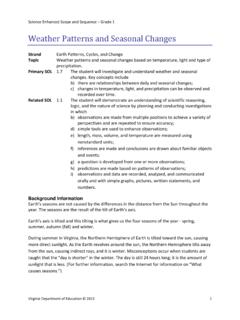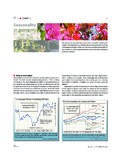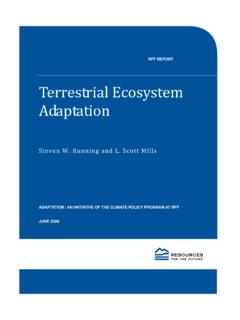Transcription of 1 2 We’re all Going on a Summer Holiday
1 Topic Titles - 2014-15 Year Possible Topic titles R Traditional Tales, Ourselves and Our school, I need a hero! Winter Christmas/Nativity, Dragons! Chinese New Year, Gingerbread man, Funnybones! Our Bodies, keeping fit, Healthy Food, tooth fairy! Growing, Museum, Art Week, Spring, The Very Hungry Caterpillar, Easter, Mothering Sunday, Traditional Tales, Transition to Y1, Growing Food, Belonging, World Music and Dance, Reception s got Talent, Special Things, Holidays 1 Good to be me, Toys, Once upon a time, The Great Outdoors, To infinity and beyond, Mini-beast Madness 2 The Park, Pirates, Great Fire of London, Secret Garden, Fit Kids, We re all Going on a Summer Holiday 3 Scrapheap Challenge, Where we live, Deadly 60, Water Worlds, Time Team, Global Gardens 4 Tomb Raiders, Vive La France! Out of India, Oh when the Saints! Toga-tastic, Food Glorious Food 5 Raiders or Traders? Journey to Space, Eco-Heroes, Potions, The Mayans, Brazil 6 Survival of the fittest, Living on the edge, Up the Chimneys, Down the mines, Route 66, Eureka National Curriculum Map - 2014-15 Geography Science History UK Non UK & Themes Science topics seasonal / on- Going UK Non UK 1 Local Study (Good to be Me & The Jolly Postman) *their locality *use simple fieldwork and observational skills to study the geography of their school and its grounds and the key human and physical features of its surrounding environment.
2 *Geographical skills and fieldwork *use world maps, atlases and globes to identify the United Kingdom and its countries, as well as the countries, continents and oceans studied at this key stage *use aerial photographs and plan perspectives to recognise landmarks and basic human and physical features; *devise a simple map; and use and construct basic symbols in a key The UK (Scotland) (An Island Home) *United Kingdom *understand geographical similarities and differences through studying the human and physical geography of a small area of the United Kingdom, *use basic geographical vocabulary to refer to: key physical features, including, , soil, valley, vegetation, season and weather key human features, including: city, town, village, factory, farm, house, office, port, harbour and shop *use world maps, atlases and globes to identify the United Kingdom and its countries, as well as the countries, continents and oceans studied at this key stage *identify seasonal and daily weather patterns in the United Kingdom.
3 Senses and body parts (Good to be me) *identify, name, draw and label the basic parts of the human body and say which part of the body is associated with each sense. Materials (Once upon a time) *distinguish between an object and the material from which it is made *identify and name a variety of everyday materials, including wood, plastic, glass, metal, water, and rock *describe the simple physical properties of a variety of everyday materials *compare and group together a variety of everyday materials on the basis of their simple physical properties. Animals (Old MacDonald) *identify and name a variety of common animals including fish, amphibians, reptiles, birds and mammals *identify and name a variety of common animals including fish, amphibians, reptiles, birds and mammals *describe and compare the structure of a variety of common animals (fish, amphibians, reptiles, birds and mammals, including pets) seasonal changes & Light *observe changes across the four seasons *observe and describe weather associated with the seasons and how day length varies.
4 Plants and animals *identify and name a variety of common wild and garden plants, including deciduous and evergreen trees *identify and describe the basic structure of a variety of common flowering plants, including trees. History of toys (Toys) *identify similarities and differences between ways of life in different periods *changes within living memory. Where appropriate, these should be used to reveal aspects of change in national life Neil Armstrong (To infinity and beyond) *They should ask and answer questions, choosing and using parts of stories and other sources to show that they know and understand key features of events *They should understand some of the ways in which we find out about the past and identify different ways in which it is represented. changes within living memory. Where appropriate, these should be used to reveal aspects of change in national life *the lives of significant individuals in the past who have contributed to national and international achievements.
5 Some should be used to compare aspects of life in different periods [for example, Elizabeth I and Queen Victoria, Christopher Columbus and Neil Armstrong, William Caxton and Tim Berners-Lee, Pieter Bruegel the Elder and LS Lowry, Rosa Parks and Emily Davison, Mary Seacole and/or Florence Nightingale and Edith Cavell] 2 Local Park (Percy the Park Keeper) *Geographical skills and fieldwork *use world maps, atlases and globes to identify the United Kingdom and its countries, as well as the countries, continents and oceans studied at this key stage *name, locate and identify characteristics of the four countries and capital cities of the United Kingdom and its surrounding seas *use aerial photographs and plan perspectives to recognise landmarks and basic human and physical features; *devise a simple map; and use and construct basic symbols in a key *use simple fieldwork and observational skills to study the geography of their school and its grounds and the key human and physical features of its surrounding environment.
6 Weather (Secret Garden) identify seasonal and daily weather patterns in the United Kingdom Contrasting non EU country (We re all Going on a Summer Holiday ) *knowledge about the world, *understand geographical similarities and differences through studying the human and physical geography of a small area in a contrasting non-European country *use basic geographical vocabulary to refer to: key physical features, including: beach, cliff, coast. key human features, including: city, town, village, factory, farm, house, office, port, harbour and shop *use world maps, atlases and globes to identify the United Kingdom and its countries, as well as the countries, continents and oceans studied at this key stage Maps, oceans, continents, Hot & Cold, equator, north & South poles (Pirates) *name and locate the world s seven continents and five oceans *the location of hot and cold areas of the world in relation to the Equator and the North and South Poles use basic geographical vocabulary to refer to: key physical features, including, forest, hill, mountain, sea, ocean, river, *use simple compass directions (North, South, East and West) and locational and directional language [for example, near and far; left and right], to describe the location of features and routes on a map Materials, Floating, sinking, weight (Pirates/ Land Ahoy!)
7 *identify and compare the suitability of a variety of everyday materials, including wood, metal, plastic, glass, brick, rock, paper and cardboard for particular uses *find out how the shapes of solid objects made from some materials can be changed by squashing, bending, twisting and stretching. Living things and habitats Food chains (Secret Garden) *explore and compare the differences between things that are living, dead, and things that have never been alive *identify that most living things live in habitats to which they are suited and describe how different habitats provide for the basic needs of different kinds of animals and plants, and how they depend on each other *identify and name a variety of plants and animals in their habitats, including micro-habitats *describe how animals obtain their food from plants and other animals, using the idea of a simple food chain, and identify and name different sources of food. Nutrition, animals, exercise, diet, hygiene (Fit Kids) *notice that animals, including humans, have offspring which grow into adults *find out about and describe the basic needs of animals, including humans, for survival (water, food and air) *find out about and describe the basic needs of animals, including humans, for survival (water, food and air) *describe the importance for humans of exercise, eating the right amounts of different types of food, and hygiene.
8 Growing seeds and bulbs observe and describe how seeds and bulbs grow into mature plants find out and describe how plants need water, light and a suitable temperature to grow and stay healthy. Nelson (Pirates/ Land Ahoy!) *They should use a wide vocabulary of everyday historical terms. *They should understand some of the ways in which we find out about the past and identify different ways in which it is represented. *the lives of significant individuals in the past who have contributed to national and international achievements. Some should be used to compare aspects of life in different periods [for example, Elizabeth I and Queen Victoria, Christopher Columbus and Neil Armstrong, William Caxton and Tim Berners-Lee, Pieter Bruegel the Elder and LS Lowry, Rosa Parks and Emily Davison, Mary Seacole and/or Florence Nightingale and Edith Cavell] *significant historical events, people and places in their own locality. Chronology of Fire of London & Samuel Pepys (Great Fire of London) *identify similarities and differences between ways of life in different periods *They should use a wide vocabulary of everyday historical terms.
9 *They should ask and answer questions, choosing and using parts of stories and other sources to show that they know and understand key features of events *events beyond living memory that are significant nationally or globally [for example, the Great Fire of London, the first aeroplane flight or events commemorated through festivals or anniversaries] History of English seaside holidays (We re all Going on a Summer Holiday ) *identify similarities and differences between ways of life in different periods *They should use a wide vocabulary of everyday historical terms. *changes within living memory. Where appropriate, these should be used to reveal aspects of change in national life Florence Nightingale (Fit Kids) *the lives of significant individuals in the past who have contributed to national and international achievements. Some should be used to compare aspects of life in different periods [for example, Elizabeth I and Queen Victoria, Christopher Columbus and Neil Armstrong, William Caxton and Tim Berners-Lee, Pieter Bruegel the Elder and LS Lowry, Rosa Parks and Emily Davison, Mary Seacole and/or Florence Nightingale and Edith Cavell] Geography Science History UK Non UK & Themes Science topics seasonal / on- Going UK Non UK 3 Kings Worthy & Winchester (Kings Worthy / Where we live) *beyond the local area to include the United Kingdom *Geographical skills and fieldwork *use maps, atlases, globes and digital/computer mapping to locate countries and describe features studied *use the eight points of a compass, four and six-figure grid references, symbols and key (including the use of Ordnance Survey maps) to build their knowledge of the United Kingdom and the wider world Rivers, mountains, water cycle (Water Worlds)
10 *This will include the location and characteristics of a range of the world s most significant human and physical features * physical geography, including: climate zones, biomes and vegetation belts, rivers, mountains, volcanoes and earthquakes, and the water cycle *locate the world s countries *key physical and human characteristics, countries, and major cities *Geographical skills and fieldwork *use maps, atlases, globes and digital/computer mapping to locate countries and describe features studied use the eight points of a compass, four and six-figure grid references, symbols and key (including the use of *Ordnance Survey maps) to build their knowledge of the United Kingdom and the wider world Forces and Magnets (Robots) *compare how things move on different surfaces *notice that some forces need contact between two objects, but magnetic forces can act at a distance *observe how magnets attract or repel each other and attract some materials and not others *compare and group together a variety of everyday materials on the basis of whether they are attracted to a magnet, and identify some magnetic materials *describe magnets as having two poles *predict whether two magnets will attract or repel each other, depending on which poles are facing.







